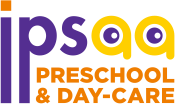Preschool is an important phase in a child’s development, where they are exposed to various activities that not only provide entertainment but also foster their educational growth. Fun and educational activities at preschool play a vital role in enhancing cognitive, social, emotional, physical, and linguistic skills in young children.
These activities not only make learning enjoyable but also lay a strong foundation for their future academic endeavours. In this article, we will explore a range of engaging and educational activities that children must learn during their preschool years, highlighting their significance in nurturing well-rounded development.
1. Introduction to Fun and Educational Activities at preschool
Understanding the Importance of Fun and Educational Activities
At preschool, learning should never be a boring affair. Fun and educational activities play a crucial role in shaping your child’s early development. These activities not only make learning enjoyable, but they also lay a solid foundation for future academic success. So, forget the traditional image of stuffy classrooms and rigid lesson plans – preschool is all about creating a fun and engaging environment that sparks curiosity and nurtures young minds.
Benefits of Engaging Children in preschool Activities
preschool activities offer a multitude of benefits for your child both academically and personally. Through play and interactive learning, children develop essential cognitive, social, and emotional skills. They learn to think critically, problem-solve, communicate effectively, and work collaboratively. Furthermore, engaging in activities at a young age helps stimulate creativity, imagination, and self-expression. So, by encouraging your child to participate in these activities, you are setting them up for a lifetime of learning and personal growth.
2. Developing Cognitive Skills through Interactive Play
Introducing Problem-Solving Activities
Who says problem-solving has to be boring? preschool is the perfect time to introduce your child to activities that challenge their little brains. Puzzles, building blocks, and simple maths games can help develop their analytical thinking and problem-solving skills. So, watch out for those tiny sherlocks in the making!
Promoting Critical Thinking through Puzzles and Games
Preparing your child to become a master of critical thinking starts early. preschool activities like puzzles and brain teasers encourage children to analyse, reason, and make decisions independently. These games provide a fun way to sharpen their minds and develop their ability to think logically. Who knows, maybe your child will be the one solving world mysteries in the future!
Stimulating Memory and Concentration with Memory Games
Memory games are not just for older folks. Preschoolers can also benefit greatly from activities that enhance memory and concentration. Simple matching games, memory cards, and storytelling exercises help your child strengthen their brain muscle. Plus, it’s always amusing to witness their excitement when they triumphantly remember all the pairs!
3. Enhancing Social and Emotional Development with Group Activities
Encouraging Collaboration and Teamwork
preschool is an excellent opportunity for your child to learn the value of teamwork and collaboration. Group activities such as building projects, role-playing, and team sports teach children how to work together, share ideas, and respect different perspectives. These experiences lay a solid foundation for future social interactions and instill important values like cooperation and empathy.
Building Empathy and Emotional Intelligence through Role-Playing
Who needs Hollywood when you have a group of preschoolers playing pretend? Role-playing activities provide a safe space for children to explore different emotions, perspectives, and social situations. By stepping into various roles, children develop empathy, emotional intelligence, and valuable life skills. Plus, it’s always hilarious to see your little one pretending to be a superhero or a princess!
Promoting Communication Skills and Active Listening in Group Settings
Group activities at preschool offer the perfect setting for children to practice their communication skills and learn the art of active listening. Through discussions, storytelling, and interactive games, children learn to express themselves effectively, articulate their thoughts, and respect others’ opinions. These activities help foster strong communication skills that will benefit them in school and beyond.
4. Fostering Creativity and Imagination through Art and Music
Exploring Various Artistic Mediums and Techniques
preschool is a hub of creativity waiting to be unleashed. Through art activities, children can explore various mediums like painting, drawing, sculpting, and crafting. Letting their imaginations run wild, they learn to think outside the box and express their unique perspectives. Who knows, you might have a mini Picasso or Mozart in the making!
Encouraging Self-Expression through Drawing and Painting
The colorful world of drawing and painting is one of the best ways your child can express their thoughts and feelings. preschool art activities encourage children to use lines, shapes, and colors to communicate their emotions and experiences. So, don’t be surprised if your fridge ends up covered in abstract masterpieces!
Introducing Music and Movement for Expression and Rhythm
When in doubt, add some music and let the rhythm take over! Music and movement activities at preschool not only promote physical coordination but also allow children to express themselves creatively. They can dance, sing, and play instruments, discovering the joy of music and finding their own sense of rhythm. Who wouldn’t want a mini pop star in the family?
Now that you have a taste of the fun and educational activities that await your child at preschool, get ready for them to embark on an exciting journey of learning, growth, and discovery. So, pack their backpack with enthusiasm and let the adventures begin!Technology as a Tool for Creativity and Problem Solving
Exploring Digital Literacy through Interactive Activities and Games
5: Engaging in Physical Activities and Outdoor Play for Physical Development
Who says learning can’t be fun? At preschool, children get to unleash their energy and develop their physical abilities through engaging in physical activities and outdoor play. From developing gross motor skills to promoting balance and coordination, these activities are essential for your child’s physical development.
Gross motor skills, such as running, jumping, crawling, and climbing, are crucial for your child’s overall development. Preschool provides ample opportunities for active play, allowing children to refine these skills through exciting games and exercises. So, don’t be surprised if your little one comes home with rosy cheeks and a newfound love for movement!
Outdoor games also play a significant role in promoting balance and coordination. Whether it’s playing tag, hopping on one leg, or navigating obstacle courses, these activities help your child gain better control of their body movements. Plus, what’s more fun than enjoying the great outdoors while enhancing skills?
Additionally, manipulative activities, such as puzzles, building blocks, and stringing beads, introduce fine motor skills. These activities help children refine their hand-eye coordination, grip strength, and dexterity, which are essential for tasks like writing or tying shoelaces. And who knows, your child might just become the next great architect or jewelry designer!
6: Introduction to Early Literacy and Language Skills
It’s never too early to start building a love for literature and language. At preschool, children are introduced to early literacy and language skills that lay the foundation for their future communication and learning.
Storytelling and reading sessions are fantastic ways to build your child’s vocabulary. Whether it’s through exciting picture books or captivating tales, children expand their repertoire of words, and the joy of storytelling leaves them wanting more. Who knows, you might even discover a little bookworm in your midst!
Phonemic awareness, the ability to identify and manipulate individual sounds in words, is another crucial skill. Preschoolers develop this skill through rhyming and word games, helping them develop a better understanding of language patterns and preparing them for reading and writing later on. So, get ready for some tongue twisters and rhyming fun!
Writing might seem like a daunting task for little hands, but preschoolers are encouraged to explore early writing skills through scribbling and tracing. These activities help children develop fine motor control and begin to recognize shapes and letters. Who knows, it might even be the first step towards their Nobel Prize-winning novel!
7: Exploring Science and Nature through Hands-on Experiments
Preschool is where curiosity meets discovery. Through hands-on experiments, children get to explore the wonders of science and nature, paving the way for future scientists, naturalists, or just curious little minds.
Simple science experiments are a fantastic way to engage children’s curiosity and encourage exploration. Whether it’s mixing colours to create new shades or observing how water evaporates, these experiments spark wonder and foster a love for scientific discovery.
Nature walks and observation are also integral to a preschool curriculum. Children learn about the natural world by exploring their surroundings, observing plants and animals, and discovering the beauty of the great outdoors. Plus, who can resist the excitement of spotting birds or collecting colourful leaves?
Preschool also introduces children to basic concepts of cause and effect through experiments. Whether it’s observing how plants grow or seeing what happens when you mix vinegar and baking soda, these hands-on experiences help children grasp fundamental scientific principles. Who knows, your child might just become the next Einstein or Jane Goodall!
8: Integrating Technology for Learning and Skill Development
In the digital age, technology has become an integral part of our lives, and preschool education is no exception. Integrating technology allows children to explore, learn, and develop essential skills in a fun and interactive way.
With age-appropriate educational apps and websites, preschoolers can engage with educational content tailor-made just for them. Whether it’s interactive maths games or vocabulary-building exercises, technology serves as a valuable tool for reinforcing and expanding their knowledge.
Technology also promotes creativity and problem-solving abilities. With digital tools like drawing apps or puzzle games, children can unleash their imagination and sharpen their critical thinking skills. Who knows, your child might create the next Mona Lisa or solve the world’s greatest mysteries!
Finally, preschool introduces children to digital literacy through interactive activities and games. Learning how to navigate digital interfaces and understanding online safety are important skills for the modern world. So, rest assured, your little one will be well-prepared for the digital age ahead.
In conclusion, preschool is a place of endless possibilities and exciting adventures. Engaging in physical activities, exploring literacy and language skills, conducting science experiments, and embracing technology are just a few of the many fun and educational activities your child will experience. So, get ready for a preschool journey filled with laughter, discovery, and a whole lot of learning!By incorporating fun and educational activities into your child’s preschool experience, you are setting them up for a lifetime of learning and growth. These activities not only provide entertainment but also help in developing essential cognitive, social, emotional, physical, and linguistic skills. From interactive play to outdoor exploration, art and music to science experiments, preschool offers a rich and stimulating environment for children to thrive. Embrace these activities and watch as your child flourishes in their development, ready to take on the exciting challenges of the future.

